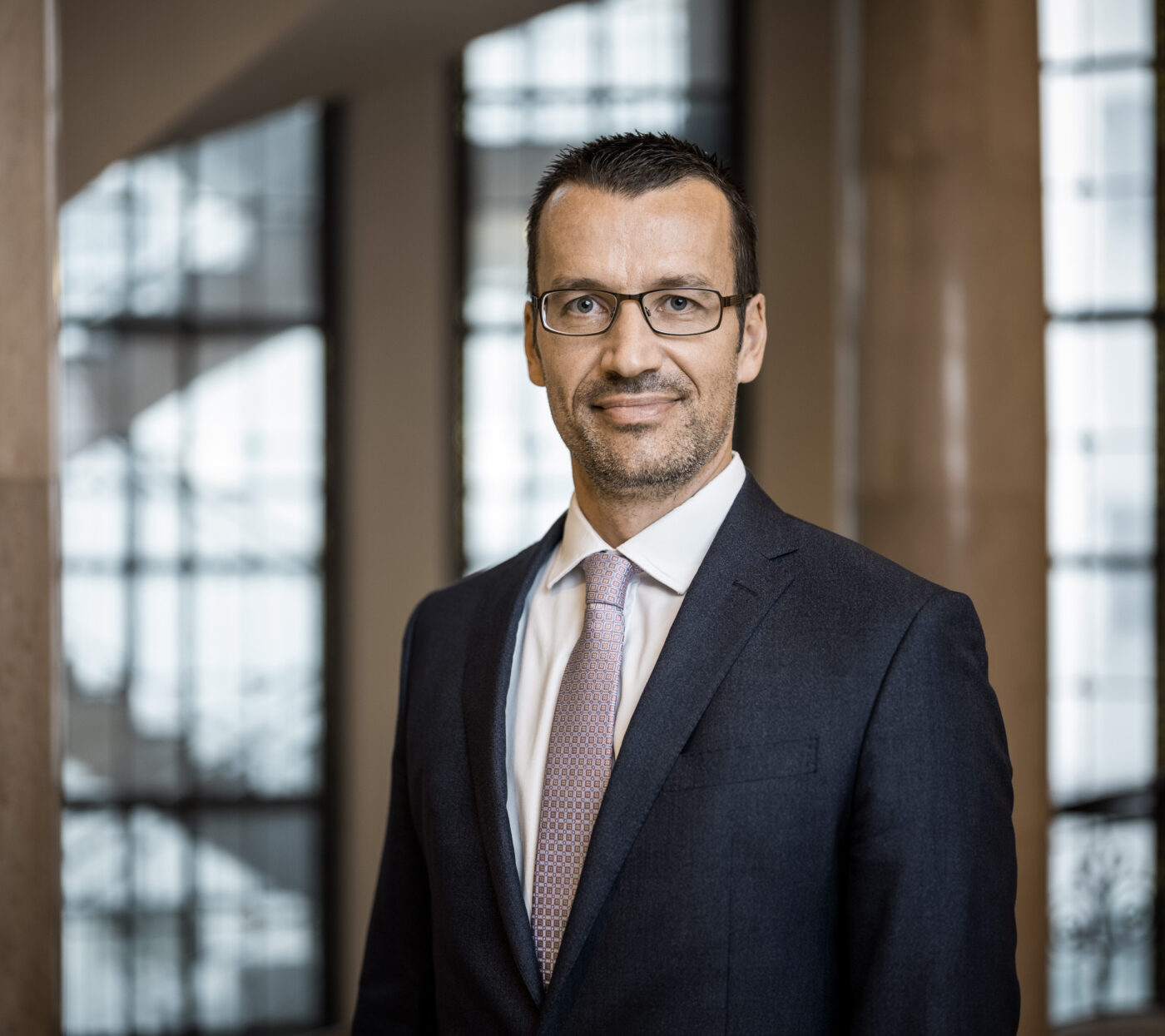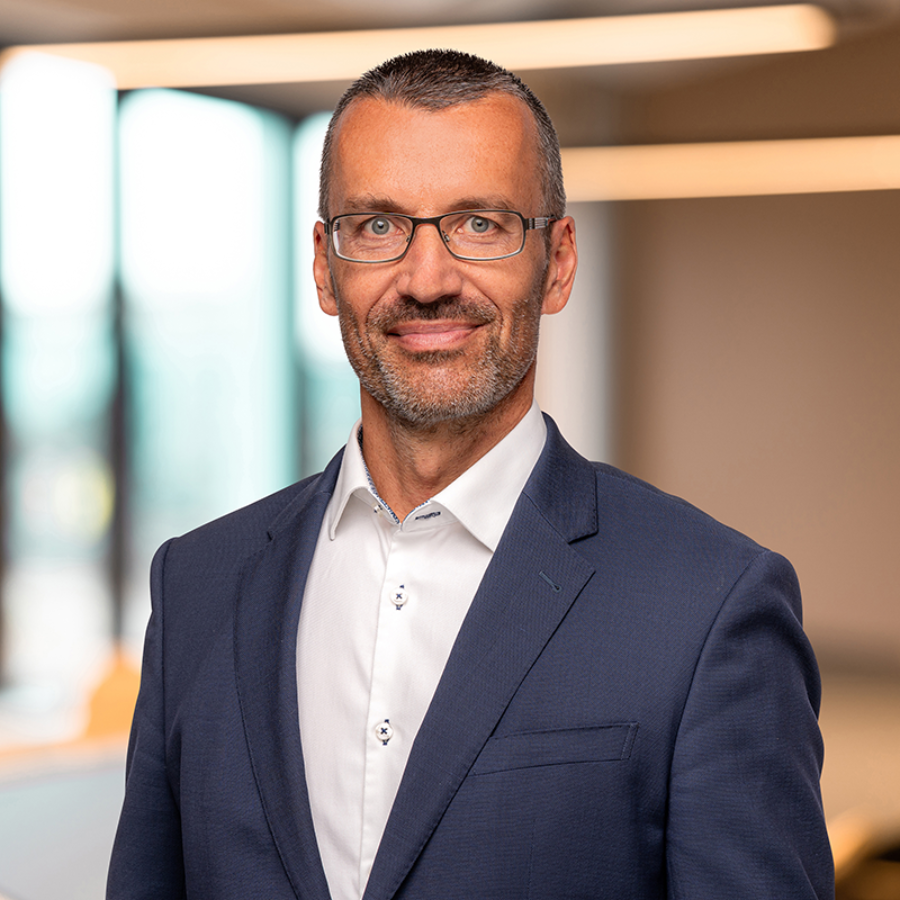
Mr Kraus, you are Head of Small Cap Equities at Berenberg. What is the appeal of small caps and why should investors invest in them?
There are many reasons for the long-term outperformance of small caps. Traditionally, small and medium-sized companies grow faster than large companies. Small caps also benefit from greater innovation and entrepreneurial dynamism. Less regulatory pressure, a stronger local presence in times of nearshoring and a higher likelihood of being acquired by other companies also help. Fundamentally, there is a large number of companies to choose from in the small cap sector: Over 90 per cent of companies at European and international level are micro or small caps. In addition, smaller companies receive significantly less attention from external analysts. This is unjustified, as this segment contains many concealed global market leaders with above-average growth ("hidden champions").
You and your team manage the Berenberg European Small Cap and Micro Cap Fund and the Berenberg International Micro Cap Fund. What characterises the investment approach of your funds and how do they differ?
In all three strategies, we focus on the smallest but most exciting companies in future-oriented sectors such as technology, healthcare and industry, and generally hold these companies for many years. The Berenberg European Small Cap fund focuses on European companies with a market capitalisation of EUR1bn-4bn, while the Berenberg European Micro Cap fund focuses on European companies with a market capitalisation of between EUR100m and EUR1bn. Our investment horizon is generally more than five years.
Our newest product is the Berenberg International Micro Cap. With this new concept, we invest in small companies in niche markets such as Australia, New Zealand, Israel, Singapore and South Korea, as well as in undiscovered companies in efficient markets such as the US/Canada and Japan. The EUR900m average weighted market capitalisation of a portfolio company in the Berenberg International Micro Cap Fund is significantly lower than that of a US competitor at EUR3bn. The fund also offers diversification benefits to existing clients. The historical correlation to the European Small Cap is relatively low at around 0.74. All team members are invested in our three funds and we have strict capacity limits for our small and micro cap products.
What factors do you consider when selecting stocks? Is this selection process different from that for large caps?
We focus on high-quality companies with attractive long-term growth drivers. We look for three things: an excellent competitive position, strong management teams and very attractive financial ratios (including high profit margins and returns on capital, strong balance sheets). The companies we favour have benefited from their strong pricing power, especially in this inflationary environment, have performed well in a difficult macroeconomic environment and have often emerged stronger. Our portfolios focus on global leaders in the growth sectors of technology, healthcare and industry. The stock universe is very large compared to large caps and is also under-covered by analysts. As a result, stock selection is generally more complex, but the opportunities over the longer term are greater.
Small caps have performed disappointingly over the past two years, both in absolute terms and relative to large caps. Can you explain the reasons for this?
An almost toxic combination of an inflationary shock and economic slowdown, together with extremely restrictive central bank policies and one of the biggest bond market sell-offs in 50 years, led to significant valuation declines for growth and quality companies, and small caps in particular. Of course, small caps in particular had significantly outperformed large caps in previous years and were trading at a premium. However, with inflation rates already falling sharply, the end of the interest rate hike cycle and the first signs of an economic recovery, we are confident that the headwind from falling valuations is behind us. Reliable growth, high profitability and returns on capital, and strong balance sheets are coming back into focus.
Which sectors and regions are of particular interest in the small cap space at the moment?
Our conviction remains unchanged: breakthrough innovations in technology (e.g. software, semiconductor equipment) or healthcare (e.g. medical devices, diagnostics) offer the highest potential for long-term earnings growth. This is what drives stock prices.
Given this rather optimistic outlook, what risks do you see?
There are always risks and uncertainties in the short term – such as a weak economic recovery, continued central bank hawkishness, geopolitical tensions, etc. That is why you should invest for the long term if possible. After all, significantly above-average earnings growth has always been reflected in rising share prices over the longer term.
How do you position your funds to take advantage of the expected turnaround? How do you ensure robustness to be well positioned in the event of less favourable developments?
We have not allowed the difficult market environment of the past 18 months to distract us from our long-term investment approach. For example, there are still no traditional banks, insurers or property companies in the portfolio. On the other hand, we have continued to take advantage of opportunities that have arisen on the downside, for example in the semiconductor sector and in medical technology and diagnostics companies. We are convinced that our companies will continue to grow profitably over the long term and emerge stronger from crises, thanks to their strong balance sheets, high profitability, attractive returns on equity and high barriers to entry in their respective niche markets. We therefore consider our portfolios to be well positioned: The average portfolio company has a return on equity of more than 20%, no net debt and medium-term sales and earnings growth rates of 10-15% and 15-20% respectively. On average, the earnings per share of our holdings double every four to five years.
How do you assess the potential of technology trends such as artificial intelligence or renewable energy for small and micro cap companies?
Everyone's talking about AI. We can clearly see that this is a new trend with probably great potential. Unlike the Dotcom bubble of 1998-2000, we are now dealing with profitable and fast-growing companies. We have a number of fantastic companies in our portfolios, particularly in the semiconductor equipment sector, which are benefiting significantly from this trend. We are more cautious when it comes to renewable energies – often (too) high debt levels, low returns on capital, strong competition and regulatory uncertainty make us wary. However, we are invested in a number of companies that offer energy efficiency technologies.
Short vita
Peter Kraus has been Head of Small Cap Equities at Berenberg since 2017. He and his team manage three small and micro cap equity funds as well as other international small and micro cap mandates. Previously, he was a fund manager for European micro and small/mid caps at Allianz Global Investors, where he made a significant contribution to the success of the small cap team. He was responsible for the management of European small cap funds as well as for the acquisition and management of international institutional mandates and was honoured with several awards.
Our interview guest

Peter Kraus
Peter Kraus has been Head of Small Cap Equities at Berenberg since October 2017. He began his career in 2000 as an equity analyst for a corporate finance consultancy in Munich before moving to Deka-Investment in Frankfurt in 2003. There he worked as an analyst for European Small Caps. In 2006 he joined Allianz Global Investors as Fund Manager for European Micro and Small/Mid Caps, where he contributed significantly to the success of the Small Cap team in the following years. Peter Kraus was responsible for the management of various European Small and Mid Cap funds as well as for the acquisition and management of international institutional mandates. He studied Business Administration at the University of Mannheim and is a CFA Charterholder.


